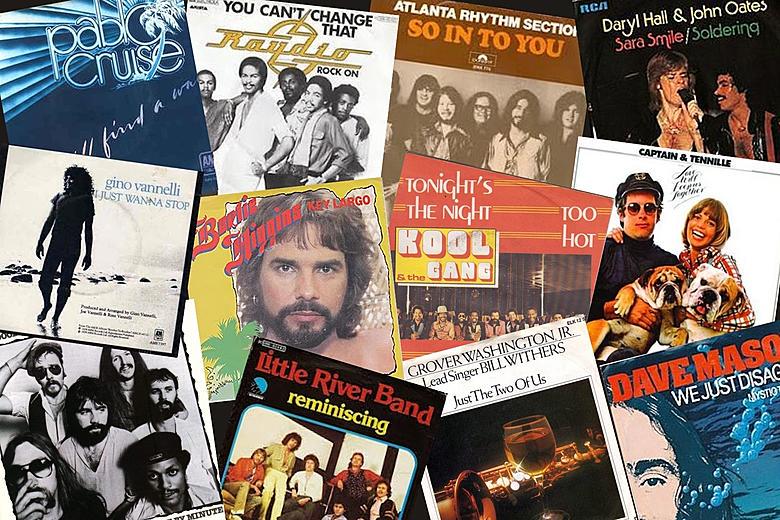What is Yacht Rock Music? An In-Depth Guide to the Smoothest Sound of the 70s and 80s

If you’ve ever found yourself cruising down the Pacific Coast Highway with the windows down, basking in a golden California sunset and accompanied by the breezy sounds of Steely Dan or Hall & Oates, you’ve experienced the magic of yacht rock. But what exactly is yacht rock music, and why does it continue to capture the hearts of listeners decades after its heyday? Let’s set sail into the smooth waters of this iconic genre.
What Is Yacht Rock?
Yacht rock refers to a style of soft rock music that flourished on FM radio in the late 1970s and early 1980s. Characterized by its glossy production, smooth vocal harmonies, and laid-back grooves, yacht rock conjures images of leisurely cruises along Southern California’s marinas—where the genre first found its voice.
Some of the most prominent artists in the yacht rock canon include:
- The Doobie Brothers
- Christopher Cross
- Michael McDonald
- Toto
- Steely Dan
- Hall & Oates
- Rupert Holmes
- Fleetwood Mac
Yacht rock tracks typically feature polished studio craftsmanship, catchy hooks, and a certain sun-drenched, easygoing vibe that sets them apart from the harder-edged sounds of punk, disco, or heavy metal from the same era.
A Brief History of Yacht Rock
While the music itself was everywhere in the late '70s and early '80s, the term “yacht rock” wasn’t coined until 2005, when a comedy web series of the same name debuted on Channel 101. The series, created by JD Ryznar, Hunter Stair, and Lane Farnham, humorously dramatized the lives of real-life yacht rock stars as friends, rivals, and collaborators living the high life in Los Angeles’ Marina del Rey.
This tongue-in-cheek show brought renewed attention to the genre and led a new generation of music fans to rediscover its smooth, sophisticated sound. As a result, classic yacht rock hits like “Africa” by Toto, “Escape (The Piña Colada Song)” by Rupert Holmes, and “I Can’t Go For That (No Can Do)” by Hall & Oates became cult favorites once again.
For a fun, in-depth look at the origins of the term and its cultural impact, check out the Yacht Rock documentary series.
Key Characteristics of Yacht Rock
What makes a song yacht rock? Here are the hallmarks of the genre:
- Crystalline Production: Producers like Ted Templeman and Gary Katz brought a meticulous, high-fidelity sound to these tracks. From Steely Dan’s “Time Out of Mind” to Toto’s “Rosanna,” the attention to sonic detail is paramount.
- Harmonic Sophistication: Many yacht rock musicians had strong backgrounds in jazz and classical music, resulting in complex harmonies and chord progressions that set these songs apart from standard pop fare.
- Session Musicians: The genre is famous for its use of top-tier session players, sometimes known as the "West Coast A-Team," contributing to the genre’s tight, professional sound.
- West Coast Roots: Los Angeles was ground zero for yacht rock, with most recording taking place in legendary studios like Sunset Sound and Sound City.
- Smooth, Breezy Vibes: The overall feel is relaxed and positive—perfect for sunny afternoons or, of course, a day on the water.
For a curated playlist of essential yacht rock tracks, check out Spotify’s Yacht Rock playlist.
Notable Yacht Rock Songs
Here are just a few must-hear classics:
- “Sailing” by Christopher Cross
- “What a Fool Believes” by The Doobie Brothers
- “Ride Like the Wind” by Christopher Cross
- “Peg” by Steely Dan
- “Baby Come Back” by Player
- “Brandy (You’re A Fine Girl)” by Looking Glass
- “The Boys of Summer” by Don Henley
Want to explore more? The Ultimate Yacht Rock Playlist from uDiscover Music is a great resource.
Why Yacht Rock Endures
Yacht rock’s legacy endures because of its sophisticated musicianship, universal themes of love and escapism, and that unmistakable, sun-soaked vibe. Its influence can be heard in contemporary artists who blend pop, jazz, and R&B—including John Mayer, Thundercat, and the pop resurgence of the late 2010s.
Additionally, the genre’s resurgence has been fueled by nostalgia, themed parties, and even satellite radio stations dedicated to the sound. For a deep dive into the genre’s cultural impact, read Pitchfork’s essay on The Untold Story of Yacht Rock.
Create Your Own Yacht Rock Vibe with AI
Inspired to craft your own smooth hit? Modern tools like online AI music generators make it easy to experiment with the yacht rock style—no studio access required. For those interested in generating their own soft rock beats or lyrics, check out this AI music creation tool.
Conclusion
Yacht rock is more than just a musical genre—it’s a state of mind. With its lush production, intricate musicianship, and carefree spirit, it continues to inspire listeners and musicians alike. Whether you’re discovering it for the first time or returning to old favorites, yacht rock is the perfect soundtrack for your next adventure, on land or at sea.
Further Reading & Resources:
